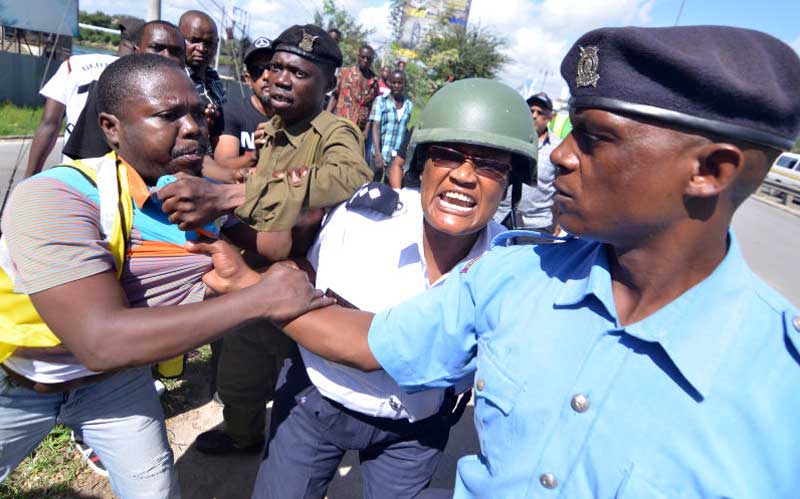×
The Standard e-Paper
Fearless, Trusted News

It did not take too long for the UhuRuto regime to revert to its default position of using force and violence in dealing with dissent.
After three consecutive Mondays of peaceful demonstrations in Mombasa by frustrated, angry and hungry citizens over the illegal order to essentially move the port from Mombasa to Nairobi, the regime brought out the police force to disperse a legal protest and violently arrested some protestors.